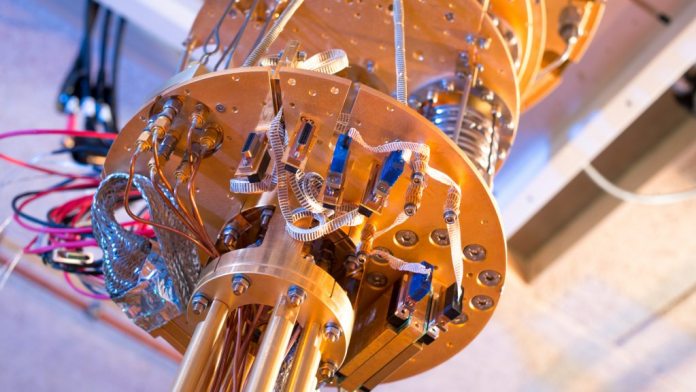Google has unveiled a new cryptographic method designed to resist potential attacks from quantum computers in the future. This development comes as quantum computing continues to advance, prompting a shift from current security keys vulnerable to quantum threats.
Traditional public key cryptography, initially designed to guard against conventional computer threats, is predicted to falter in the face of quantum attacks. Google engineers mentioned in a blog post, “While quantum attacks are still in the distant future, deploying cryptography at internet scale is a massive undertaking which is why doing it as early as possible is vital.”
Collaboration with ETH Zurich
The newly introduced FIDO2 key employs the Dilithium cryptographic algorithm, a product of Google's collaboration with ETH Zurich in Switzerland. This algorithm is among the contenders submitted to the NIST post-quantum cryptography project. Google emphasized that the standardization of quantum resilient cryptography has illuminated the path to fortified cryptographic security.
Hybrid Signature Approach
Elie Bursztein, cybersecurity and AI research director, and Fabian Kaczmarczyck, software engineer, shared on Google's security blog, “Our proposed implementation relies on a hybrid approach that combines the battle-tested ECDSA signature algorithm and the recently standardized quantum-resistant signature algorithm, Dilithium.” They further explained the importance of this hybrid signature, stating, “Relying on a hybrid signature is critical as the security of Dilithium and other recently standardized quantum-resistant algorithms haven't yet stood the test of time.”
Technical Challenges and Future Prospects
Creating a Dilithium implementation compact enough for security keys' limited hardware was a significant challenge. However, through meticulous optimization, Google developed a memory-efficient version requiring only 20 KB of memory. The team also ensured the signature speed met the expected security key specifications. Looking ahead, Google hopes that this implementation, or a variant of it, will be standardized as part of the FIDO2 key specification and gain support from major web browsers.
Quantum Computing and Cryptography
If large-scale quantum computers become a reality, they could compromise many of the current public-key cryptosystems. Companies like IBM and Google are in a race to develop the fastest quantum computer, which could revolutionize present-day cryptography. The National Institute of Standards and Technology (NIST) highlighted the importance of post-quantum cryptography, aiming to create cryptographic systems secure against both quantum and classical computers.
Microsoft too is heavily invested in quantum computing, including developing quantum computers, which the company plans to develop within a decade. As part of its quantum supercomputing roadmap, Microsoft has unveiled Azure Quantum Elements, a system designed to accelerate scientific discovery in the fields of chemistry and materials science.
Dealing with Security in a Quantum Age
As quantum computing moves into scalable reality through platforms such as Azure Quantum, there are concerns over security. Specifically, how super-powerful quantum machines will be able to break through modern encryption technologies. Tech companies are taking the threat seriously and exploring ways to secure systems against supercomputers.
For example, in August 2022, Cloudflare published the results of a recent positive experiment. It is an experimental post-quantum cryptography feature known as Kyber that allows website administrators to add support for two new encryption algorithms: X25519Kyber512Draft00 and X25519Kyber768Draft00.
These Cloudflare algorithms are designed to be secure even against attacks from quantum computers, which are still in their early stages of development but are expected to become more powerful in the future. The new feature will allow websites to start preparing for a post-quantum world, even though current web browsers do not yet support these algorithms.
Microsoft too is putting R&D into creating secure quantum platforms. Microsoft's Executive Vice President of Security, Charlie Bell, is leading an initiative to develop quantum-safe technologies to protect data and systems from future threats posed by quantum computing.
Quantum computing is a rapidly developing field with the potential to revolutionize many aspects of technology, including cryptography. However, quantum computers could also be used to break current encryption standards, which could have a devastating impact on cybersecurity.






